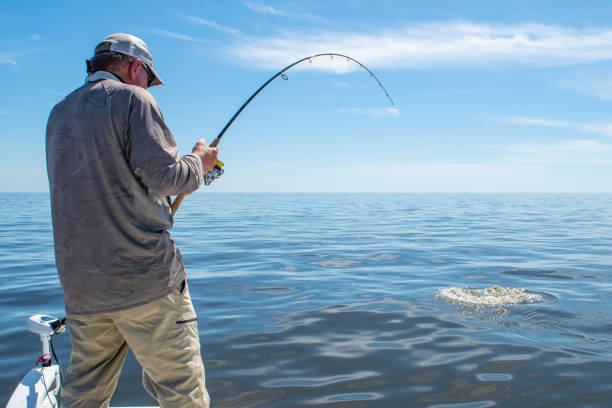Annie Bourgeois
December 7, 2006La. officials: New oil revenue provides hope, protection
December 11, 2006NEW ORLEANS (AP) _ Louisiana’s congressional delegation on Wednesday made a final push to get Congress to give the state hundreds of millions of dollars from offshore royalties in the Gulf of Mexico to fix its eroding coast.
Since last year’s catastrophic hurricane season, confidence in Louisiana’s delegation has been mounting that Congress would finally give Louisiana a steady stream of money with which to build levees, restore damaged wetlands and reverse decades of land loss. Louisiana has lost over 2,000 square miles of coast _ an area roughly the size of Delaware _ in the past century. Human activities have mostly been blamed for the land loss.
Under the bill, Louisiana and three other Gulf states would get a much greater portion of the federal royalties from offshore natural gas and oil drilling. Eventually, Louisiana expects to receive $650 million a year, a leap from the $32 million it now gets from production in state-controlled waters.
Congress closes its lame-duck session within days, and Louisiana’s delegation has been eager to get a bill passed before a new Democratic-controlled Congress resumes business next year.
“After 50 years of fighting for this, I think we’ll get it done this week in Congress,” said U.S. Rep. Bobby Jindal, R-La.
But it was uncertain if the measure would pass. The offshore-revenue sharing scheme was attached to an all-purpose bill put forward by the Senate covering everything from normalized trade with Vietnam and tax breaks for millions of taxpayers.
Doubts remained if the House and Senate could come together on a package that would not be so laden with expensive programs that it becomes unpassable.
Jindal called the bill “a very popular piece” of legislation with a good chance for passage.
U.S. Sen. Mary Landrieu, D-La., said she would “give our chances at 90 percent or higher” for the bill’s passage. She noted that while some provisions in the all-purpose bill are being “hotly debated” the offshore drilling part of it is “not one of them.”
Sidney Coffee, Gov. Kathleen Blanco’s coastal affairs adviser, said getting a stream of money is “beyond critical.” She added that a Democratic-controlled Congress might be more unfavorable to revenue sharing because the incoming chairmen of critical committees in the House and Senate are “philosophically opposed” to the concept.
“Immediately you’ve got big challenges just getting a bill like this out of committee,” Coffee said.
The offshore drilling bill opens up 8.3 million acres of the Gulf now off limits to drilling in an area 125 miles south of the Florida Panhandle and about 300 miles from Florida’s Gulf coast. It is believed to contain 1.3 billion barrels of oil and 6 trillion cubic feet of natural gas, enough gas to heat 6 million homes for 15 years. The country uses about 21 million barrels of oil a day.
Even if Louisiana gets the windfall there are many skeptics who question how much work to save the coast would get done.
Dean Blanchard, a shrimp businessman in Grand Isle, said he has not seen much evidence that the tens of millions of dollars already spent on restoration have done much good.
“Big companies,” he said, “get money to study stuff; and they study, and study, and then they get more money from Congress, and they go and study, study some more. But no work gets done.”
Blanchard said the lack of progress in stemming the land loss is painfully obvious everywhere he looks.
“Right back of my shrimp company, where I was born and raised, you used to throw a baseball across the bayou to an island, and the island is gone,” he said.
Albert Naquin, the chief of the Isle de Jean Charles Band of the Biloxi-Chitimacha-Choctaw, echoed Blanchard’s sentiments. “If it’s given to people to make money in their pockets, it may be going to the wrong place.”
Naquin’s American Indian village is another example of south Louisiana’s plight. The marsh that once surrounded the village has eroded and the village now routinely floods.
Oliver Houck, an environmental professor at Tulane University, had a slightly different take on the direction the state might take with a flood of money.
His concern is that instead of using the money to plant new marshland and rebuild the wetlands officials will funnel the money into projects that actually wind up doing more harm than good to the coastal environment.
“It looks like we’re going to spend money on building roads down to Grand Isle,” he said. “There’s not much money down there to be made out of growing blades of grass.”









